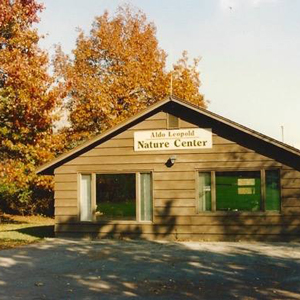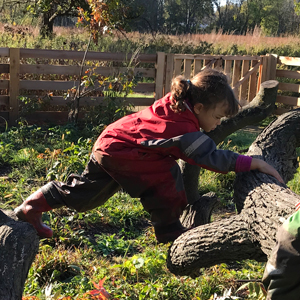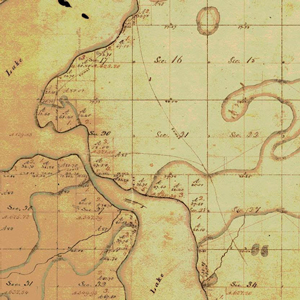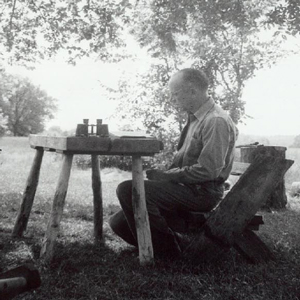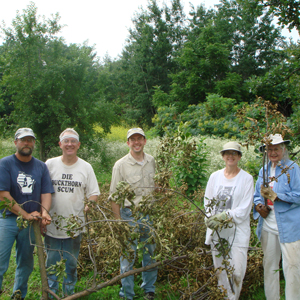The mission of the Aldo Leopold Nature Center (ALNC) is to nurture children, their well-being, and environmental sustainability through connecting and learning in nature. Established in 1994, we are an independent, non-profit organization that, in the spirit of Aldo Leopold and the Land Ethic, teaches students to see the land, to understand what they see and to enjoy what they understand…as part of our shared community.
Located in Monona, we work to engage, educate, and empower students through programming and services designed primarily for school age children, ages 2-14. We reach these students, and others, through their teachers and families, our community partners, donors, and volunteers, through School Field Trips, Summer Camps, Wonder Bugs, Homeschool Programs, After School Programs, Vacation Day Programs, Scout Programs, and Aldo Leopold Nature Preschool.
Our Mission
We nurture children, their well-being, and environmental sustainability through connecting and learning in nature.
Our Vision
People have a connection to nature, living healthy lives in a sustainable environment.
Our Values
Inspired by how Aldo Leopold’s Land Ethic has evolved “in the minds of a thinking community,” we hold core values of:
- Education: We prioritize nurturing children and teaching them about the world through programs that spark a sense of connection, wonder, and true belonging in the outdoors, now and throughout their lifetimes.
- Equity: We respect and honor all children and families by applying a multi-faceted, relational approach to nature-based learning experiences.
- Inclusion: We commit to creating safe and welcoming spaces where children and the whole community can positively connect with nature and each other.
- Stewardship: We inspire an environmentally-considerate generation that is empowered to take positive ecological and social actions for a sustainable future.
- Well-being: We foster the physical, social-emotional, and academic benefits of nature-based experiences.
ALNC ensures visitors of all ages and backgrounds have opportunities to connect with nature by offering positive and constructive learning opportunities that capture their interest, engage their senses and teach them to appreciate the interconnectedness of all living things. For more information on how we are expanding access, please see our Community Ethics & Nature page.
History of ALNC
Aldo Leopold Nature Center has been serving area students, teachers and families since 1994, when it was founded by a group of dedicated local supporters, including Madison business leader and philanthropist Terry Kelly, Aldo Leopold’s eldest daughter Nina Leopold Bradley, and a board of directors. ALNC was incorporated as a 501c3 nonprofit organization with a mission to “teach the student to see the land, understand what he sees, and enjoy what he understands,” in the words of Aldo Leopold. Around this time, ALNC also spearheaded Nature Net, which has continued to connect regional environmental education providers and resources with schools and families around Wisconsin for more than 25 years.
Since our humble beginning in a converted greenhouse, our programs and offerings have evolved. We’ve grown from serving 4,000 visitors a year in 1994 to over 80,000 school children, their families and members of our community annually. Over time, our dedicated staff, board and community stakeholders have worked together to expand our summer camp and field trip programs and add a wide variety of opportunities for kids, their families, teachers and community members to connect with nature, including programs for preschool-aged children, scouts, homeschool students, educators, the public and more.
With growing interest in our educational programs and ever-increasing numbers of visitors, we’ve needed to expand our facility throughout the years. The converted greenhouse was replaced by the original nature center in 1997, providing necessary teaching and administrative space. In 2012, we unveiled an 11,000-square-foot addition that added an expanded lobby, public amenities, exhibit space and our Science on a Sphere and the Blue Marble Immersion Theaters. ALNC’s facility has also featured many sustainability and green building features over the years.
In 2017, following an extensive strategic planning process, we rededicated our mission to engage and educate current and future generations, empowering them to protect, respect, and enjoy the natural world. This process resulted in our Bridge to the Future: Strategic Planning Initiatives and made it clear that we needed to remodel our building to increase and better utilize our teaching space. In addition to more functional staff areas and new family bathrooms, we added seven accessible indoor and outdoor Learning Labs and created the Aldo Leopold Nature Preschool. We also committed at this time to being more intentionally inclusive of our diverse community, and we continue to work towards increasing Inclusion, Diversity, Equity and Access at ALNC.
For three decades, Aldo Leopold Nature Center has sparked countless connections between children and the natural world, instilling life-long wonder and respect for nature. All of these begin with the natural magic that occurs on the land — in the prairie, pond, and forests — and the legacies left before us.
Legacy of the Land
We acknowledge the First Nations that came before us, specifically the Ho-Chunk Nation, on whose ancestral land ALNC sits. The Ho-Chunk have traditional lands across the upper Midwest; our local Madison area is called Teejop (day-JOPE) which refers to its four lakes (Mendota, Monona, Waubesa and Kegonsa). This area, known for its many Native American mounds, has a rich human history extending back several thousand years. The Ho-Chunk remain active in our community, continuing to sustain their culture and beliefs, despite government seizure or forced removal from most of these lands. We are grateful to all who have long stewarded this land, and we recognize that we have much to learn. As we work to educate ourselves and others of the cultural and historical significance of our land, we invite you to check out the many resources on the Wisconsin First Nations website.
Native Americans inhabited Monona as early as 7000 BCE. During the Late Woodland stage (650 CE to 1200 CE), Mound Builders were active around the Four Lakes Area, including on our neighboring hilltops in what is now adjacent Woodland Park and Edna Taylor Conservation Park. According to early land surveys (see image), this property and surrounding areas also hosted a major Native American Trail through at least the mid-19th Century, when the Ho-Chunk people resided in this area. Following the removal of the Ho-Chunk Nation, others left their legacy on this land including European immigrant farmers who grew crops here.
In the early 1920s, a Madison doctor named Louis Head purchased the land and opened Morningside Tuberculosis Sanitarium, which served as a healing sanctuary for over fifty years. When the sanitarium closed in the 1970s, the land was preserved through a private foundation, and the L.R. Head Nature Center was created in what were the sanitarium’s 20-acre manicured gardens and grounds. A predecessor to the Aldo Leopold Nature Center, its mission was to “provide environmental education for area schools” and further the principles of famed 20th-century Wisconsin conservationist, Aldo Leopold. The L.R. Head Nature Center operated for 25 years and hosted 7,500 school children at its peak.
In the early ’90s, the land was sold and slated for development to become homes, condominiums and businesses. However, those who came to love the land and its wild inhabitants knew it must be conserved. Many passionate and forward-thinking Monona residents organized a campaign, and after extensive negotiations, the City of Monona purchased the land with a stipulation that a nature center be located on the site. Several of these local residents worked tirelessly over the decades to restore our native wetland, woodland and prairie habitats, and they remain active Land Steward volunteers to this day.
This land and its legacy are preserved for all of our community to experience, so that we each might, in the legacy of Aldo Leopold, see it as a community to which we belong and learn to use it with love and respect.
